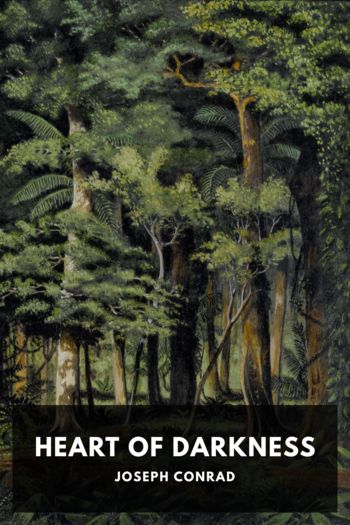Whoever Fears the Sea Justin Fox (books for 8th graders .txt) 📖

- Author: Justin Fox
Book online «Whoever Fears the Sea Justin Fox (books for 8th graders .txt) 📖». Author Justin Fox
What the fuck am I doing? he thought. He downed the warm dregs of his beer, bade his goodnights and took a turn round the lawn before bed. From a low bluff he could see the beach stretching away into the darkness. The water was ruffled, the sea breathing softly. Shards of moonlight jiggled in the shore-break.
With his air-conditioner set to high, he stood naked in the bedroom spraying his body with Tabard, then a squirt of Doom around the room and under the bed. There was no mosquito net. He climbed into bed and lay there with a hard-on and nothing to pin it in. Sharon? The Italian lobe-nibbler? Anyone but Hannah. Should he get some moisturising cream from the complimentary goodies basket in the bathroom? It was too much effort. Trapped in paralysing indecision, he nodded off.
CHAPTER 4
The morning provided a groggy start, and it took a force of will for Paul to lever himself out of bed. He swallowed two Panadols. Today, he had to kick-start his research. Down in the dining hall, he struggled through a bowl of fruit and yoghurt, then made heavy weather of an omelette, conjured before his eyes by an egg magician in a silly hat.
A rabbit sat staring at him from the lawn as he ate. By the time he’d finished eating, the rabbit still had not moved a whisker. Was it a statue? Maybe it was dead? Behind the bunny, clouds began to boil above the palms like empty thought bubbles. His mind was in slow motion. The punkah-punkah fan went round and round above his head. He was having enough trouble focusing on his dishwater coffee, let alone the job at hand. Get up from the table, go into town, find a thread, write some notes, take some photographs, get your arse into gear. The rabbit had gone. ‘Alive!’ she cried, he wrote in his notebook, the first entry for People of the Monsoon.
An hour later, the taxi dropped Paul in Nyeri Street. The gate to the old harbour was guarded by hordes of police. Paul had to pay to enter and was directed to the ramshackle Kenya Ports Authority building. At the top of a flight of wooden stairs, he asked for the dhow registrar and was directed to an office. He paused in the doorway of a spacious room with tall ceilings and a row of windows overlooking the jetty.
Mombasa’s dhow registrar was on the phone. He was a well-built man in his fifties and spoke with a deep, authoritative voice. He was elegant and well-groomed in a formal, old-world way. A faded photograph of President Moi gazed down from the wall above the desk, next to it the picture of a kitten staring at itself in the mirror. The reflection it saw was that of a full-maned lion. The caption read, What matters most is how you see yourself.
The registrar waved to Paul but gave no indication of being disturbed by his presence as he got on with his business. Employees came and went from the office, some bearing cash, which was deposited in a Victorian safe standing in a corner of the room. Through the windows, Paul could smell the stench of dried shark issuing from a Somali freighter’s hold. Men had formed a chain, carrying the sheets of grey flesh ashore on their backs. As the cargo piled up on the quayside, planks were offloaded from a lorry and manhandled aboard, replacing the sharks in the hold.
A model ship sat atop a filing cabinet. It resembled a rowing boat with a vertical prow, short bowsprit and flat transom. Paul took a closer look. It had intricate woodcarving, a colourful paint job and delicate rope work.
‘You like my Lamu dhow?’ said the registrar, replacing the receiver. ‘It’s a jahazi, the largest of our local dhows. Magnificent vessels.’ The man held out a hand. ‘Rasul Hussain. You must be Mr Paul, from South Africa. I received your letter. Karibu, you are most welcome.’
‘It’s a pleasure to meet you, Mr Hussain.’
‘So, you still have this ambitious plan of sailing to Lamu? Why don’t you just take the bus? It’s seven hours on bumpy roads, but at least you will get there.’
‘In our film, you see, we want to retrace the old trade routes. The dhow idea sort of brings it all together.’
Mr Hussain cleared his throat with the sound of a scraping spatula. He stood up, walked to the window and launched a projectile of phlegm between the bars towards an empty anchorage where ghost ships rode the tide. ‘Look at the harbour,’ he said. ‘In a good year, more than four hundred dhows used to visit, boats of all kinds — mostly booms, but also lots of sambuks and jahazis. Kotias, zarooks and ghanjahs too. Their cargoes were unloaded all along the waterfront: dates, salt, Mangalore tiles, carpets, everything.’ He returned to his chair. ‘There was lots of smuggling too. Fast badans used to creep into the inlets at night to meet the ivory and gold dealers. In the olden days, it would have been slaves —’ Mr Hussain lowered his voice — ‘and also in the not-so-olden days. Look here.’ He gestured at a large leather-bound register lying on the desk.
Paul saw that it held names — Harambee, Zubeida, Shiraz, Inaiya, Jada al Karim — the





Comments (0)